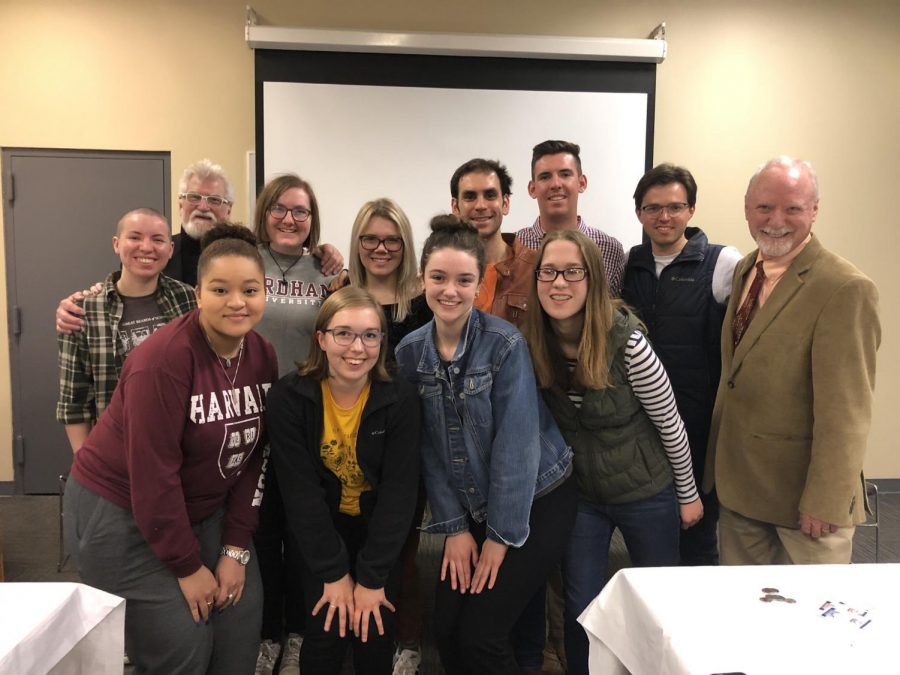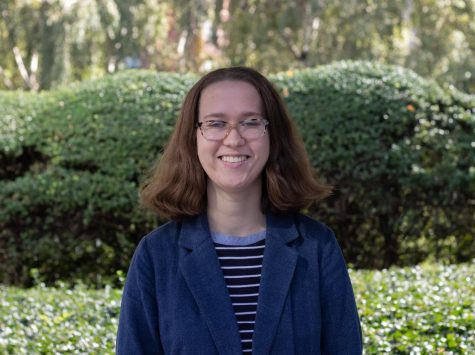The Most Magical Place in Manhattan
TITO CRESPO/THE OBSERVER
The “Year of Magic” reaches its conclusion with a fun and educational day with magician Tom Verner.
April 9, 2019
During the last week of March, Tom Verner of Magicians Without Borders, a charity that performs magic shows for marginalized and impoverished children throughout the world, along with assistants from the Yale Magic Society, came to Fordham Lincoln Center to help conclude the dean-organized Year of Magic. During his time at Lincoln Center, Verner taught two magic seminars and delivered a celebratory speech on Friday, March 29.
On Thursday, March 28 and Saturday, March 30, he and his assistants gave intimate three-hour workshops on magic to Lincoln Center students, with the intent that students would take away enough knowledge to be able to perform their own 15-20 minute magic shows.
I was able to attend the Thursday workshop, one of six students out of 13 who had signed up, with Conor O’Kane, Associate Director of Campus Ministry, and Dean Wertz. The event had a late start due to a last-minute room swap. During our session in the South Lounge, Verner taught us both simple and complex techniques, but emphasized to us the real trick of magic — the performance. In his words, “20% [of magic] is in the mechanics, and 80% is in the performance.”
He asked students to come to the front of the class and perform the trick they had just learned, students leading into the tricks with a small, often humorous, backstory. At the beginning of the class, these introductions were short, simple and sweet. By the end, students concocted elaborate backstories that ranged from being taught the trick by their Italian great-aunts to finding a magical card deck that once belonged to Houdini. He also stressed “magic moments,” a technique where you milk the payoff to your trick for everything it’s worth through dramatic flourishes, pronouncements and hand waves.
This isn’t to say that the actual tricks weren’t cool. Verner taught students the Magic Five Card Trick, The Case of the Disappearing Coin and the Mystical Money-Making Paddle (as I like to call them), among others. He said that, while the tricks were old and relatively simple, they’re good to learn as there’s always a “new crop of four, five, six year olds coming up.”
During the workshop, Verner said that the universality of magic and its infectious joy is what makes his charity successful, as “everyone seems to speak magic,” and “you can carry it with you, anytime and anywhere.” Even if he does not speak the language of the country he is performing in, everyone in the world is awed at a magic trick.
At his lecture on Friday, Verner added that his philosophy is based on a quote by Houdini: “Magic not only amazes and amuses, but it can awaken hope that the impossible is possible.” The astonishment and joy that comes from seeing the unreal become real can help alleviate stress from the situations — such as being an orphan, a refugee or a member of an impoverished family — that his audience members are in.
Verner was an excellent teacher, taking the time to learn each student’s name and assign them a partner to practice with, walking around the room offering gentle critiques following each demonstration.
Participants were very encouraging of each other even when we made mistakes, and just like Verner predicted, the universality of magic helped us all form connections to each other. All of us were equally amazed as we worked together to learn the tricks Verner demonstrated to us. The most astonishing thing wasn’t the tricks — it was that we managed to master them.
After the workshop concluded, Verner encouraged all the workshop attendees to continue to practice what they had learned, and spread the joy and amazement that magic brings into the world. While FCLC Deans’ Year of Magic events have struggled for attendance throughout the year, Verner’s seminar convinced me of the program’s key value: Magic is created to share, and its joy is infectious.











